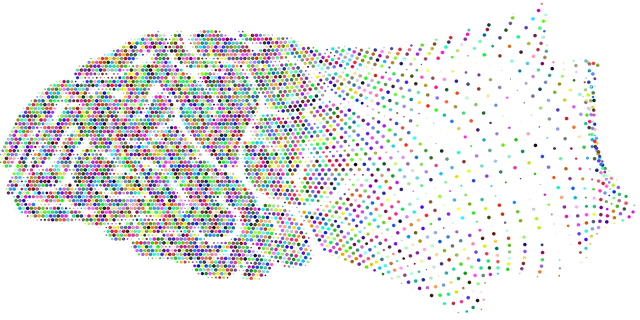Arvada Christian Counseling Therapy (ACCT) plays a pivotal role in understanding mental health data through diverse sources like patient records, surveys, and advanced technologies. Rigorous data preprocessing ensures reliability, enabling ACCT to identify trends, develop effective programs (e.g., Mental Wellness Coaching), and enhance coping skills support. Advanced analytics uncover hidden patterns from clinical notes, increasing mental health awareness. This data-driven approach personalizes interventions, addresses disparities, and positively impacts individual lives through tailored strategies like Burnout Prevention and Empathy Building.
Mental health data analysis plays a pivotal role in understanding and improving psychological well-being. This article delves into the intricacies of analyzing and interpreting mental health data, exploring its collection from various sources and the importance of preprocessing for accurate insights. We discuss advanced techniques, emphasize the art of interpretation, and provide practical guidelines for integrating findings into Arvada Christian Counseling Therapy practices to enhance patient care and outcomes.
- Understanding Mental Health Data: Collection and Sources
- Preprocessing and Cleaning Data for Accurate Analysis
- Techniques for Mental Health Data Analysis
- Interpreting Results: Insights and Implications
- Integrating Findings into Arvada Christian Counseling Therapy Practices
Understanding Mental Health Data: Collection and Sources

Understanding Mental Health Data involves recognizing that it’s a multifaceted landscape encompassing various sources and collection methods. Arvada Christian Counseling Therapy centers, like many other healthcare facilities, play a pivotal role in gathering valuable insights into individuals’ mental well-being. These data sources include patient records, clinical assessments, surveys, and feedback forms filled out by clients. Each source offers unique perspectives, from structured diagnoses to qualitative accounts of experiences. By integrating these diverse pieces, professionals can gain a comprehensive view of mental health trends within their communities.
Moreover, effective collection methods go beyond traditional paper-based records. With advancements in technology, digital platforms and mobile applications are increasingly being used to capture real-time data through online counseling sessions, wearable health devices, and smartphone apps tailored for stress reduction methods. This streamlines the risk assessment process for mental health professionals, enabling them to implement evidence-based practices and inform Mental Health Policy Analysis and Advocacy efforts.
Preprocessing and Cleaning Data for Accurate Analysis

Before any meaningful analysis can take place, data collected for mental health studies must undergo rigorous preprocessing and cleaning. This initial step is paramount as it ensures that the information is reliable, consistent, and free from errors or biases. At Arvada Christian Counseling Therapy, professionals understand that raw data often contains missing values, outliers, or irrelevant aspects that can skew results. Therefore, they employ strategies like imputation for missing data, normalization to handle varying scales, and encoding categorical variables. These techniques transform the data into a suitable format for analysis, allowing for accurate insights.
Additionally, context-specific knowledge is vital during this phase, especially when dealing with sensitive mental health topics. For instance, in developing Trauma Support Services or Empathy Building Strategies, researchers must carefully consider how to represent and interpret traumatic experiences while maintaining ethical standards. Proper data cleaning ensures that the analysis reflects the nuances of the human experience accurately, ultimately leading to more effective Mental Wellness Coaching Programs Development.
Techniques for Mental Health Data Analysis

In the realm of mental health data analysis, a multitude of techniques are employed to gain insights and promote better understanding. These methods range from statistical analysis to qualitative interpretation, with each offering unique advantages in the pursuit of enhancing Arvada Christian Counseling Therapy services. For instance, structured questionnaires and surveys allow for the collection of quantitative data, enabling researchers to identify trends and patterns within large populations struggling with mental health issues. This approach can provide a comprehensive overview, highlighting prevalent concerns and potentially guiding the development of targeted interventions.
Moreover, advanced analytics such as machine learning algorithms can uncover intricate relationships between various factors influencing mental well-being. By analyzing structured clinical notes and free-form text from therapy sessions, these algorithms can assist in identifying key themes and patterns that might otherwise go unnoticed. This not only deepens Mental Health Awareness but also aids in the Coping Skills Development and Stress Management Workshops Organization, ensuring more personalized and effective support for individuals seeking counseling.
Interpreting Results: Insights and Implications

When analyzing mental health data, particularly through Arvada Christian Counseling Therapy services, the interpretation of results yields valuable insights and implications. Therapists can uncover patterns and trends within individual or collective client populations, enabling them to adapt counseling techniques for more effective self-esteem improvement and resilience building. By understanding the emotional landscapes of their clients, therapists can design interventions that specifically target areas contributing to mental health disparities, ultimately promoting emotional well-being promotion techniques.
This data-driven approach allows for personalized care, ensuring that each client receives tailored support. For instance, identifying common stressors or triggers among individuals seeking therapy can lead to the development of targeted group sessions or community outreach programs. Such strategic interventions have the potential to positively impact not only individual lives but also the overall mental health landscape within Arvada and beyond.
Integrating Findings into Arvada Christian Counseling Therapy Practices

Integrating mental health data analysis into Arvada Christian Counseling Therapy practices offers a transformative opportunity for enhancing client care and fostering better outcomes. By leveraging insights gained from data, therapists can tailor their approach, ensuring personalized treatment plans that address unique needs. This strategic integration enables professionals to identify trends and patterns among clients, allowing them to proactively develop targeted interventions. For instance, analysis might reveal heightened rates of burnout among certain demographics, prompting the implementation of tailored Burnout Prevention strategies.
Furthermore, data-driven insights can guide the development and refinement of Empathy Building Strategies, crucial for fostering strong therapeutic alliances. By understanding the emotional landscapes of their clients, therapists can cultivate deeper connections and enhance resilience. This approach not only improves individual therapy sessions but also equips counselors with valuable information to design group sessions that promote collective Resilience Building. Through such integrated practices, Arvada Christian Counseling Therapy can offer more effective, compassionate, and culturally sensitive support to its community.
Mental health data analysis is a powerful tool for Arvada Christian Counseling Therapy professionals. By understanding, preprocessing, and interpreting this data effectively, therapists can gain valuable insights into client populations, treatment outcomes, and trends within their practice. This article has explored key techniques and considerations, from data collection to integration of findings, empowering counselors to make informed decisions that enhance service delivery and ultimately benefit clients. Adopting these practices ensures a more strategic and tailored approach to counseling in the Arvada community.












